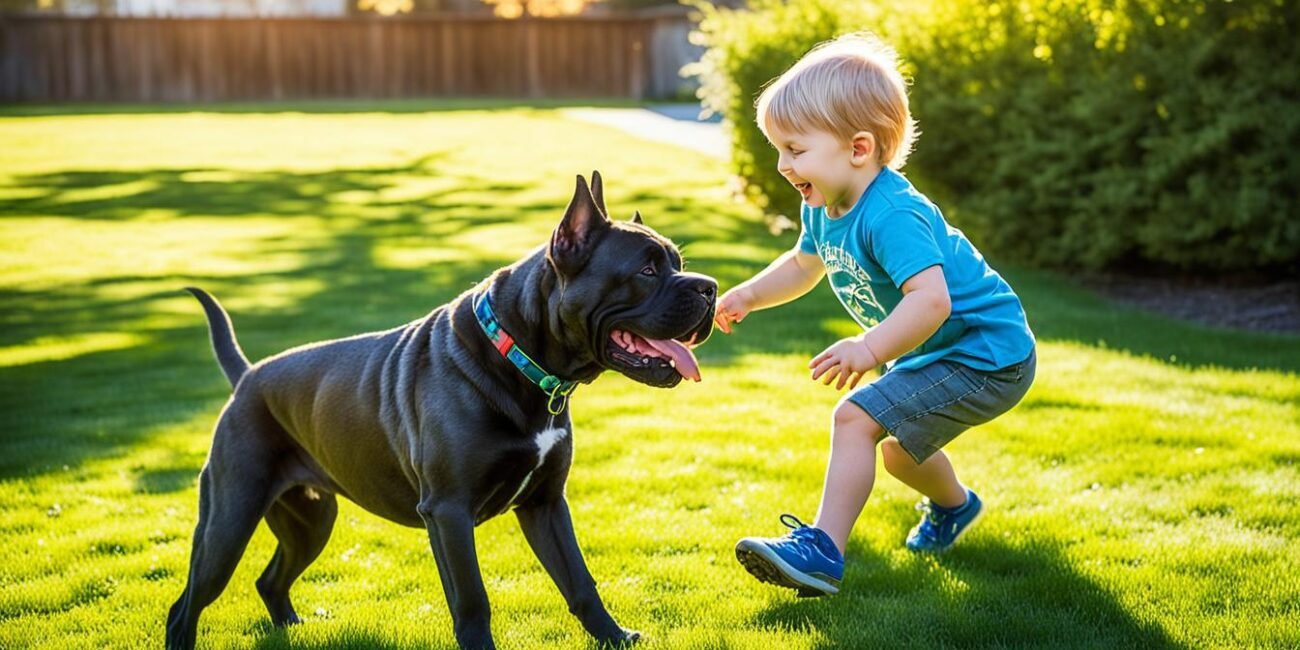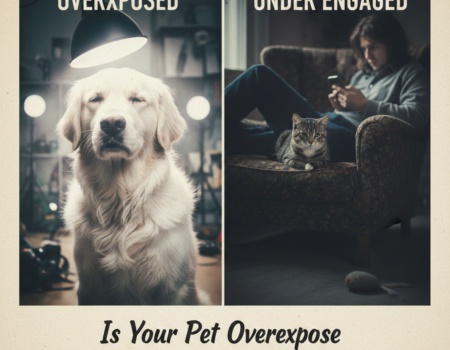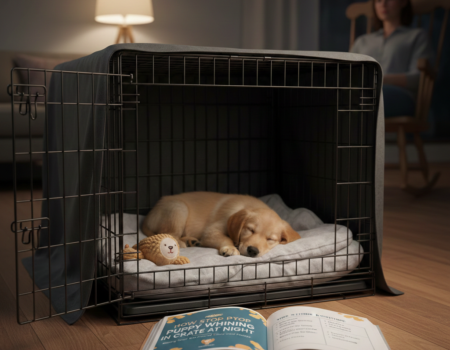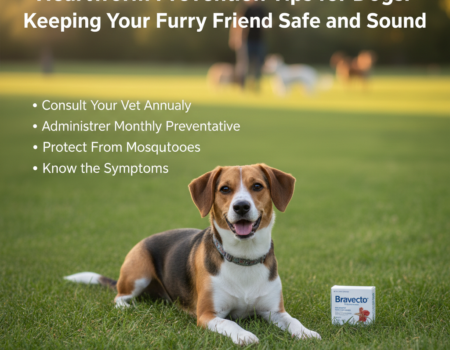Did you know that Cane Corsos, with their imposing appearance and protective nature, have been hailed as one of the best breeds for families with kids? While it may seem counterintuitive at first, these ancient dogs have a range of qualities that make them a safe and loving companion for children.
Key Takeaways:
- Cane Corsos can be excellent companions for children when properly trained and socialized.
- Their loyalty and affection make them family-friendly dogs, despite their size and strength.
- Consistent training and exercise are crucial for ensuring a harmonious relationship between Cane Corsos and kids.
- Regular vet check-ups and a proper diet can help prevent common health concerns associated with the breed.
- Consulting with a professional trainer or breeder can provide valuable guidance when integrating a Cane Corso into a family with kids.
The Cane Corso’s Temperament Around Kids
When it comes to their temperament around kids, Cane Corsos can be gentle and tolerant. These dogs are known for their loyalty and affection towards their owners, making them excellent family companions. Their protective nature further adds to their suitability for households with children. However, Cane Corsos may be indifferent towards other dogs and people outside their family circle.
One remarkable trait of Cane Corsos is their sensitivity to their owners’ moods and feelings. This emotional intelligence allows them to establish a deeper connection with their family members, including the children. Cane Corsos thrive on companionship and are eager to be involved in family activities.
Their strong work ethic drives their desire to be helpful, and they may take up the role of “assistant” while interacting with the children. Whether it’s fetching a ball or simply keeping a watchful eye, Cane Corsos enjoy having a job to do within the family unit.
Children’s Safety and Cane Corsos
While Cane Corsos can be gentle with children, it’s crucial to ensure proper supervision and guidance for everyone’s safety. As they are a large and strong breed, accidental injuries can occur, especially if the child and dog are not appropriately trained or familiar with each other’s boundaries.
Teaching children how to interact with the dog, such as not pulling on their ears or tail, is essential in fostering a positive relationship. Additionally, educating children about reading the dog’s body language and recognizing signs of discomfort or stress can help prevent incidents.
Here are some important factors to consider when introducing a Cane Corso to a household with children:
- Training: Consistent and positive training methods should be employed to establish obedience and ensure the dog understands commands and boundaries.
- Supervision: Adult supervision is recommended whenever the dog and children interact, especially in the initial stages of acclimation.
- Socialization: Exposing the Cane Corso to various situations, people, and other dogs from a young age can help instill good behavior and reduce any aggressive tendencies.
- Respecting Personal Space: Teaching both the dog and children to respect each other’s personal space is crucial to prevent any unwanted interactions or potential conflicts.
Remember, every dog is an individual, and there may be variations in temperament even within the same breed. Proper training, socialization, and creating a loving and safe environment are key to ensuring a harmonious relationship between Cane Corsos and children.
By understanding and appreciating the Cane Corso’s temperament around kids, families can make informed decisions about the compatibility of this breed with their household dynamics.
Size and Strength of Cane Corsos
Cane Corsos are a large breed, with male dogs standing between 25 and 27.5 inches tall and females standing between 23.5 and 26 inches. They have a muscular body and an imposing appearance. Their size and strength, combined with their protective nature, can make them a reliable guardian for children.
Why Size Matters:
When considering a family pet, the size of the dog is an important factor to take into account. Cane Corsos, being a large breed, can provide an additional layer of security for families with children. Their imposing size and muscular physique can act as a deterrent to potential intruders, making them an ideal choice for those seeking a protective companion.
Strength and Reliability:
The strong build of Cane Corsos enables them to have the physical capabilities necessary to protect their loved ones. Their natural inclination to guard and defend makes them loyal and reliable companions for children. With proper training and socialization, they can be gentle and gentle-natured with kids, providing a sense of security and peace of mind for parents.
Comparison of Cane Corsos’ Size and Strength
| Gender | Height (inches) |
|---|---|
| Male | 25 – 27.5 |
| Female | 23.5 – 26 |
The History of Cane Corsos
Let’s take a journey back in time to uncover the fascinating history of the Cane Corso. Originating in ancient Greece, this breed has a rich heritage steeped in noble roles and working duties. Known for their imposing appearance, Cane Corsos were initially bred as warrior dogs, fiercely guarding their owners and properties.
As time went on, the versatile nature of the Cane Corso emerged, and they transitioned into becoming valuable farm dogs. These sturdy canines proved their worth in various tasks, including droving livestock and hunting. Their intelligence, determination, and loyalty were valued traits, making them indispensable to their human partners.
“The history of being a working breed contributes to their strong work ethic and desire to be helpful.”
Today, the Cane Corso continues to carry the legacy of their ancestors. While they may no longer engage in battlefield duties, their innate sense of responsibility and desire to be productive and helpful remains ingrained in their DNA.
Training and Socialization for Cane Corsos
When it comes to raising kids with cane corsos, training and socialization play a crucial role in ensuring a positive and safe environment for both the dog and the children. Consistent and effective training sessions are necessary to establish obedience and boundaries for the Cane Corso. It is recommended to seek the assistance of an experienced trainer who understands the unique needs and behaviors of this breed.
Socialization is equally important to prevent undesirable behaviors and help the Cane Corso adjust to different environments and people. Exposing the dog to various situations, such as outings to parks, walks in busy areas, and interactions with other dogs and people, can help them develop appropriate social skills and become more comfortable in different settings.
By providing proper training and socialization, you can ensure that your Cane Corso develops into a gentle and well-behaved companion for your children.
Tips for training and socializing your Cane Corso:
- Start training from a young age: Introduce basic obedience commands and reinforce positive behaviors early on.
- Be consistent: Set clear rules and boundaries and consistently enforce them to establish a strong foundation of obedience.
- Use positive reinforcement: Reward good behavior with treats, praise, and affection to encourage the desired actions.
- Expose your Cane Corso to different environments: Gradually introduce them to various situations, such as different locations, noises, and people, to help them feel comfortable and confident.
- Supervise interactions with children: Always supervise your Cane Corso’s interactions with children to ensure safety and prevent any unwanted behaviors.
Training and socialization schedule for a Cane Corso:
| Age | Training | Socialization |
|---|---|---|
| Puppyhood | Introduction to basic commands and leash training | Positive experiences with different people, animals, and environments |
| Adolescence | Advanced obedience training and reinforcement of good behaviors | Regular outings to parks, walks in busy areas, and controlled interactions with other dogs |
| Adulthood | Continued reinforcement of obedience commands and advanced training | Ongoing exposure to new environments and social interactions |
Training and socialization challenges:
Each Cane Corso is an individual with unique personality traits and learning styles. Some may be more stubborn or independent, requiring additional patience and persistence during training. It is important to tailor the training methods to suit your dog’s temperament, while still maintaining a consistent and positive approach.
Cane Corsos’ Vocalness
One fascinating aspect of Cane Corsos is their unique vocal nature. These dogs are known to make various sounds that can be quite entertaining for families with young children. From snorts and snuffles to a distinctive “roo-roo” sound, Cane Corsos have a language of their own.
Unlike some other breeds, Cane Corsos may not bark excessively. However, their vocalizations can still add charm and liveliness to the household.
Children can find delight in mimicking the sounds made by their furry friend, creating a fun and engaging bond. It’s important to note that while Cane Corsos’ vocalness can be entertaining, it may take some getting used to for families who are unfamiliar with this breed.
In addition to their vocalizations, Cane Corsos have other endearing qualities that make them a potential match for families with children. Their protective nature, loyalty, and affection towards their loved ones can make them excellent family companions.
Cane Corsos’ Exercise and Stimulation Needs
Cane Corsos are an active and intelligent breed that thrives on both mental and physical stimulation. To keep them happy and fulfilled, it’s important to provide them with adequate exercise and mental engagement. This is especially relevant when raising kids with Cane Corsos, as it helps them maintain a healthy bond with their canine companion.
Regular exercise is crucial for Cane Corsos to prevent them from becoming bored or restless. This breed enjoys physical activities and having a job to do. Long walks, jogs, or playtime in a securely fenced yard can help burn off their energy and keep them mentally stimulated. Additionally, engaging them in dog sports, such as obedience training or agility, can provide an outlet for their natural abilities and instincts.
But exercise alone is not enough. Cane Corsos also require mental stimulation to thrive. They enjoy problem-solving activities and tasks that challenge their intelligence. Interactive toys, puzzle feeders, and scent games can keep them mentally engaged and prevent behavioral issues caused by boredom.
Moreover, involving your Cane Corso in family activities helps them feel like an integral part of the household. They can accompany you on hikes, camping trips, or even participate in agility competitions, strengthening the bond between the dog and your children.
The Benefits of Providing Adequate Exercise and Stimulation
Ensuring that your Cane Corso receives the necessary exercise and mental stimulation offers numerous benefits:
- Prevents boredom-related behaviors: Regular exercise and mental engagement help prevent your Cane Corso from becoming destructive or engaging in undesirable behaviors.
- Promotes overall well-being: Physical activity and mental stimulation contribute to your dog’s physical and mental health, leading to a happier and healthier pet.
- Strengthens the bond with children: Involving your Cane Corso in activities with the family helps to deepen the bond between children and their furry friend, fostering trust and companionship.
- Enhances training: A tired and mentally satisfied Cane Corso is more attentive and receptive to training sessions, facilitating their obedience and behavior modification.
By prioritizing exercise and mental stimulation in your Cane Corso’s routine, you can help raise a well-rounded and content canine companion for your children.
Tips for Exercising Your Cane Corso
Here are some tips to keep in mind when exercising your Cane Corso:
- Start slow: If your Cane Corso is not used to regular exercise, gradually introduce them to physical activities to avoid strain or injuries.
- Consider their age and health: Adjust the intensity and duration of exercise based on your dog’s age, overall health, and any preexisting conditions.
- Provide mental stimulation: Incorporate puzzle toys, scent games, and training sessions into your Cane Corso’s routine to challenge their mind and prevent boredom.
- Stay consistent: Establish a regular exercise schedule to ensure your Cane Corso receives daily physical and mental stimulation.
- Supervise interactions with children: Always supervise playtime between your Cane Corso and children to ensure safety and teach them appropriate behavior around dogs.
| Exercise and Stimulation Recommendations | Frequency | Duration |
|---|---|---|
| Brisk walks | At least once a day | 30-60 minutes |
| Jogging or running | 2-3 times a week | 20-30 minutes |
| Playtime (fetch, tug-of-war) | Daily | 15-30 minutes |
| Obedience training or puzzle games | Daily | 10-15 minutes |
Grooming and Care for Cane Corsos
When it comes to grooming, Cane Corsos are a low-maintenance breed. Their short and stiff coat requires minimal attention, making them an ideal choice for busy families with children.
To keep their coat in good condition and minimize shedding, regular brushing with a soft bristle brush is recommended. This helps remove any loose or dead hair, keeping their coat neat and tidy.
Although Cane Corsos are considered a light shedding breed, it’s still important to manage their coat and prevent excessive shedding around the house, especially when living with children. Regular brushing sessions can also serve as bonding time between your children and their furry friend.
Aside from coat maintenance, it’s essential to pay attention to their ears and teeth. Regularly check their ears for any signs of wax or debris buildup, as this can lead to infection. Cleaning their ears with a gentle ear cleaning solution and cotton balls can help keep them clean and prevent any discomfort.
In addition, maintaining proper dental care is crucial for overall health. Just like us, Cane Corsos can develop dental issues such as gum disease or tooth decay. Brushing their teeth regularly with dog-specific toothpaste and providing them with dental chews or toys can help keep their teeth clean and healthy.
| Grooming Needs | Care Tips |
|---|---|
| Coat | Regular brushing with a soft bristle brush to remove dead hair |
| Ears | Regularly check for wax or debris buildup and clean with a gentle ear cleaning solution |
| Dental Care | Brush their teeth regularly and provide dental chews or toys for oral health |
Common Health Concerns for Cane Corsos
Cane Corsos, like all dogs, can develop health issues. It’s important to be aware of these common health concerns to ensure the well-being of your Cane Corso and the safety of your family, especially when raising kids with these gentle giants.
Bloat
One of the major health concerns for Cane Corsos is a condition called bloat, also known as gastric dilatation-volvulus (GDV). Bloat occurs when the stomach twists, trapping gas and preventing the dog from releasing it. This is a life-threatening emergency that requires immediate veterinary attention.
Hip Dysplasia
Cane Corsos may also be prone to hip dysplasia, a genetic condition in which the hip joint doesn’t develop properly. This can lead to pain, lameness, and arthritis. Regular exercise, maintaining a healthy weight, and proper breeding practices can help reduce the risk of hip dysplasia.
Seizures
Seizures can occur in Cane Corsos and may be caused by various factors, including genetic predisposition, head trauma, or underlying health conditions. If your Cane Corso experiences seizures, it’s crucial to seek veterinary care to determine the cause and provide appropriate treatment.
Eye Problems
Some Cane Corsos may develop eye problems, such as entropion (inward rolling of the eyelids) or ectropion (outward rolling of the eyelids). These conditions can cause discomfort and potentially affect vision. Regular eye examinations and proper care can help prevent or manage these issues.
Bone and Joint Issues
Due to their large size and rapid growth, Cane Corsos are prone to certain bone and joint issues, including osteochondritis dissecans (OCD) and elbow dysplasia. These conditions can cause pain, lameness, and mobility issues. Appropriate nutrition, controlled exercise, and regular veterinary check-ups can help minimize the risk of these conditions.
Regular vet check-ups and a proper diet can help prevent or manage these health conditions. It’s important to stay vigilant and address any health concerns promptly to ensure the well-being and happiness of your Cane Corso and your family.
Conclusion
When it comes to the question of whether Cane Corsos are good with kids, the answer is a resounding yes. With proper training, socialization, and a suitable environment, these dogs can be wonderful family companions.
The Cane Corso’s protective nature, loyalty, and affection make them well-suited for households with children. They have a strong instinct to guard their loved ones, ensuring that your kids are safe and protected.
However, it’s crucial to consider the size and strength of the Cane Corso. These dogs are large and powerful, so appropriate supervision and handling are necessary, especially when interacting with younger children. Regular exercise should also be incorporated into their routine to keep them mentally and physically stimulated.
To ensure a successful integration of a Cane Corso into a family with kids, we recommend consulting with a professional trainer or breeder. They can provide valuable guidance on training techniques, socialization strategies, and creating a harmonious living environment.
FAQ
Are Cane Corsos good with kids?
Cane Corsos can be good with kids when properly trained, socialized, and given the right environment. Their protective nature, loyalty, and affection make them potential family-friendly companions.
How do Cane Corsos behave around kids?
Cane Corsos are known to be protective and loyal towards their owners, including children. However, their behavior may vary, and early training and socialization are important to ensure a positive interaction.
What is the temperament of Cane Corsos around kids?
Cane Corsos can have a gentle temperament around kids when raised in a loving and supportive environment. They are generally affectionate and loyal towards their family members, including children.
How should Cane Corsos be raised with children?
Raising Cane Corsos with children involves consistent training, socialization, and supervision. Teaching children how to interact respectfully with the dog and setting clear boundaries for both parties is essential.
Do Cane Corsos get along well with other dogs?
Cane Corsos can be indifferent towards other dogs, including those outside of their family. Proper socialization and controlled introductions are necessary to ensure positive interactions.
How big and strong are Cane Corsos?
Cane Corsos are a large breed, with males standing between 25 and 27.5 inches tall and females standing between 23.5 and 26 inches. They have a muscular body and are known for their strength.
What is the history of Cane Corsos?
Cane Corsos are an ancient breed that dates back to ancient Greece. They were originally bred as warrior dogs and later became well-rounded farm dogs. Their history as a working breed contributes to their strong work ethic and desire to be helpful.
How should Cane Corsos be trained around children?
Consistent training sessions, ideally with an experienced trainer, are recommended to establish obedience and ensure the dog understands boundaries. Early socialization helps the dog adjust to different environments and people.
Do Cane Corsos make vocal sounds?
Yes, Cane Corsos are known for their unique vocal nature. They make various sounds, including snorts, snuffles, and a distinctive “roo-roo” sound. These vocalizations can be entertaining but may take some getting used to.
How can I provide adequate stimulation for my Cane Corso?
Cane Corsos thrive on both mental and physical stimulation. They enjoy having a job to do and participating in dog sports or working on a farm. Regular exercise, such as long walks or playtime, is crucial to keep them fulfilled.
How often should I groom my Cane Corso?
Cane Corsos have a short and stiff coat that requires minimal grooming. Regular brushing with a soft bristle brush helps remove dead hair. It’s also important to check their ears regularly for wax buildup and maintain proper dental care.
What are common health concerns for Cane Corsos?
Common health concerns for Cane Corsos include bloat, hip dysplasia, seizures, eye problems, and bone and joint issues. Regular vet check-ups and a proper diet can help prevent or manage these conditions.










No Comment! Be the first one.